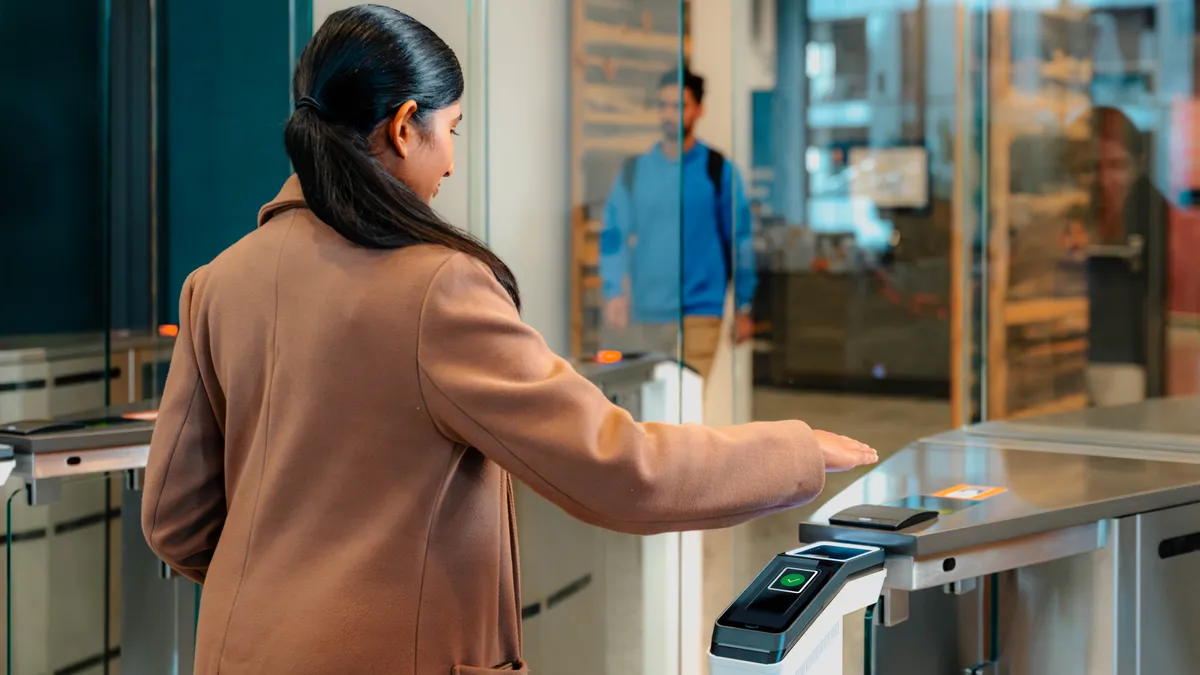Dive Brief:
- The Amazon One app launched on the App Store and Google Play Store on March 28, allowing customers to sign up for the retailer’s contactless palm recognition service anywhere, according to a company news post.
- When a customer signs up for the service with the app and hovers their palm over the Amazon One device for the first time, artificial intelligence tech is powered to compare and match the vein imagery with their camera phone photo. Upon completion, enrollment is finished.
- The service can be found at over 500 Whole Foods Markets, several Amazon stores and third-party locations like stadiums, airports, gyms and convenience stores. Over 80% of shoppers who use Amazon One at Amazon and Whole Foods Market stores choose to use the service repeatedly, according to the company.
Dive Insight:
Amazon’s latest innovative tool can be used to enter various locations, identify individuals, pay for items and access loyalty rewards with the help of generative AI. Previously, shoppers could only sign up for the service by hovering their hand over an Amazon One device in-store.
“Amazon One was developed using generative AI to create synthetic palm images, which were critical in training our machine learning models,” the company said in the news post. “AI also powers our latest innovation — the ability to match a camera phone photo with near-infrared imagery from an Amazon One device — while still maintaining a highly accurate and secure service.”
First-time users on the app won’t need to factor in additional time for sign up during checkout, ensuring “faster lines and a more frictionless in-store experience,” per the company. Customers can create their profile with the app by logging into their Amazon account, taking a photo of their palm or both palms and adding a payment method.
Images of palms taken with the app are encrypted and sent to a secure Amazon One domain in the Amazon Web Service cloud. The photos also cannot be downloaded to maintain customer privacy and data security, the company said.
To create a palm signature, Amazon One synthesizes both the palm and vein structure, which is used to create a unique numerical vector representation.
The retail giant first announced the service in 2020, acknowledging its plans to offer Amazon One to third parties like retailers and office buildings. For its launch, the tech was first introduced at two Amazon Go Seattle stores.
Amazon’s quest for innovative payment methods doesn’t stop there. The company introduced its Just Walk Out tech at Amazon Go stores in 2016. But just this week, the retail giant announced it would drop the tech at some grocery stores as part of a chain-wide revamp. In stores, Amazon will instead offer its smart shopping carts with a digital surface allowing customers to pay using the card associated with their Amazon account. The company on Wednesday also confirmed that it is cutting hundreds of jobs in its AWS unit, including “a few hundred” in its Physical Stores Technology team. Those layoffs were in part due to its decision to scale back its Just Walk Out tech.
















